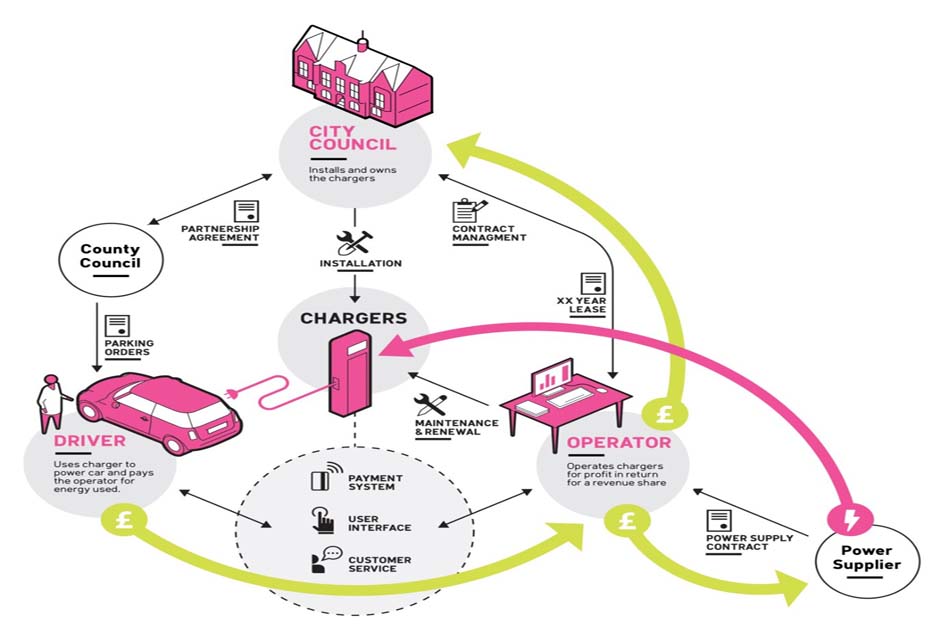Run by Oxford City Council and Oxfordshire County Council, the Go Ultra Low Oxford project is trialling six types of charging infrastructure over 12 months to assess their suitability for on-street charging in residential areas. Case Study provided by the Energy Saving Trust.
The project was awarded £816,000 from the Office for Low Emission Vehicles (OLEV), which covers the capital costs of the trial and the subsequent roll-out of around 100 chargepoints.
Oxford City Council developed a bespoke concession framework, which reflects the time and resource intensiveness of this innovative trial. Their framework also considers relatively lower income typically generated by on-street residential chargepoints, when compared to rapid chargers, for example.
Using OLEV funding, Oxford City Council fully covered all capital costs (including equipment and installation) and therefore retains ownership of the chargepoints. The chargepoints are then leased to commercial chargepoint operators for four years, with the option to extend the contract by a further four years.
The council do not pay a monthly fee to cover operational costs. Instead, the operator is responsible for the maintenance and operation of the chargepoints, including customer service, collection of payments and the power supply contract.They operate the chargepoint for profit, returning a revenue share to the council once the chargepoint is profitable. All units are Open Chargepoint Protocol (OCPP) compliant, which ensures they are compatible with a single back-office system provider, New Motion.

